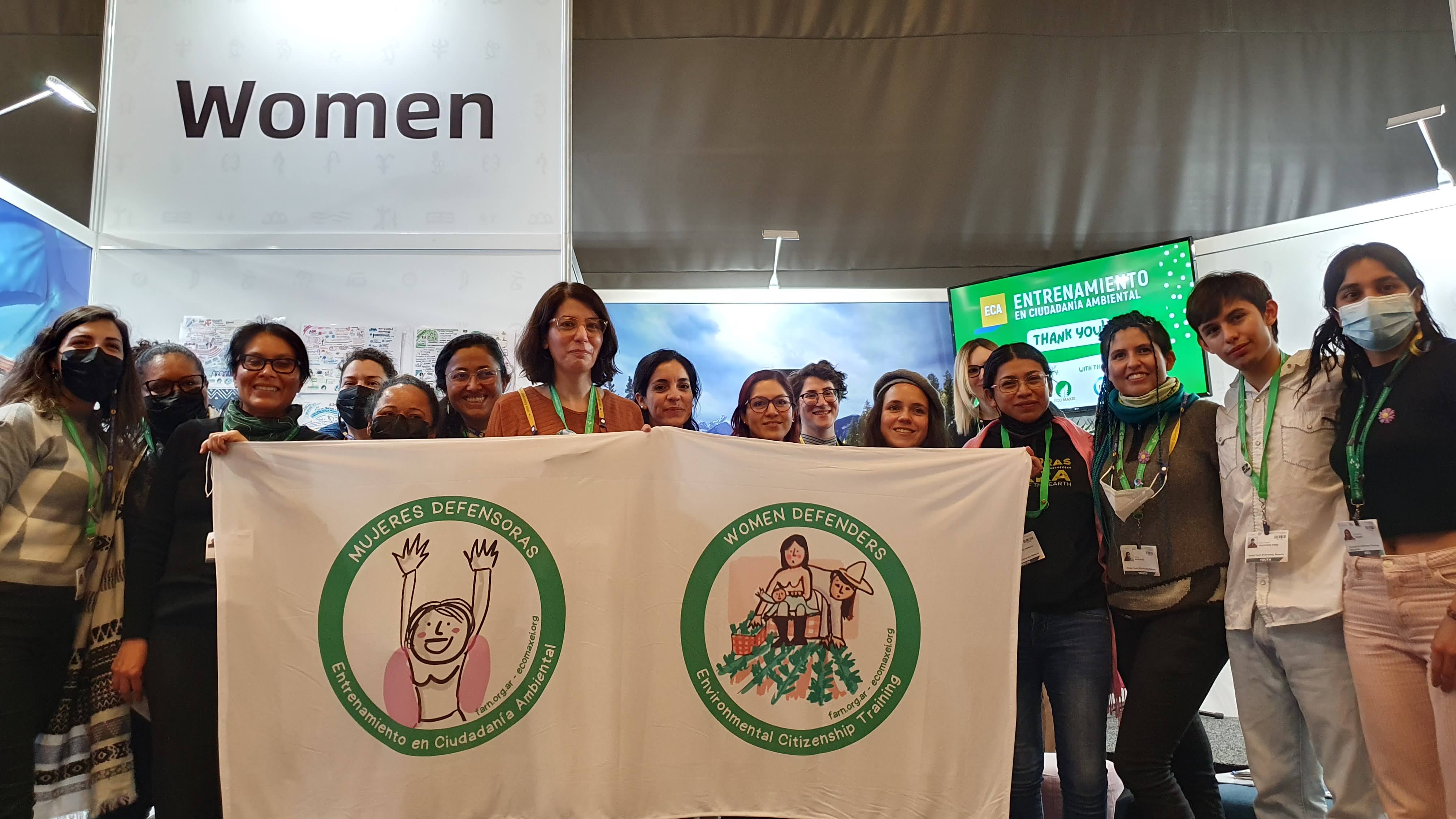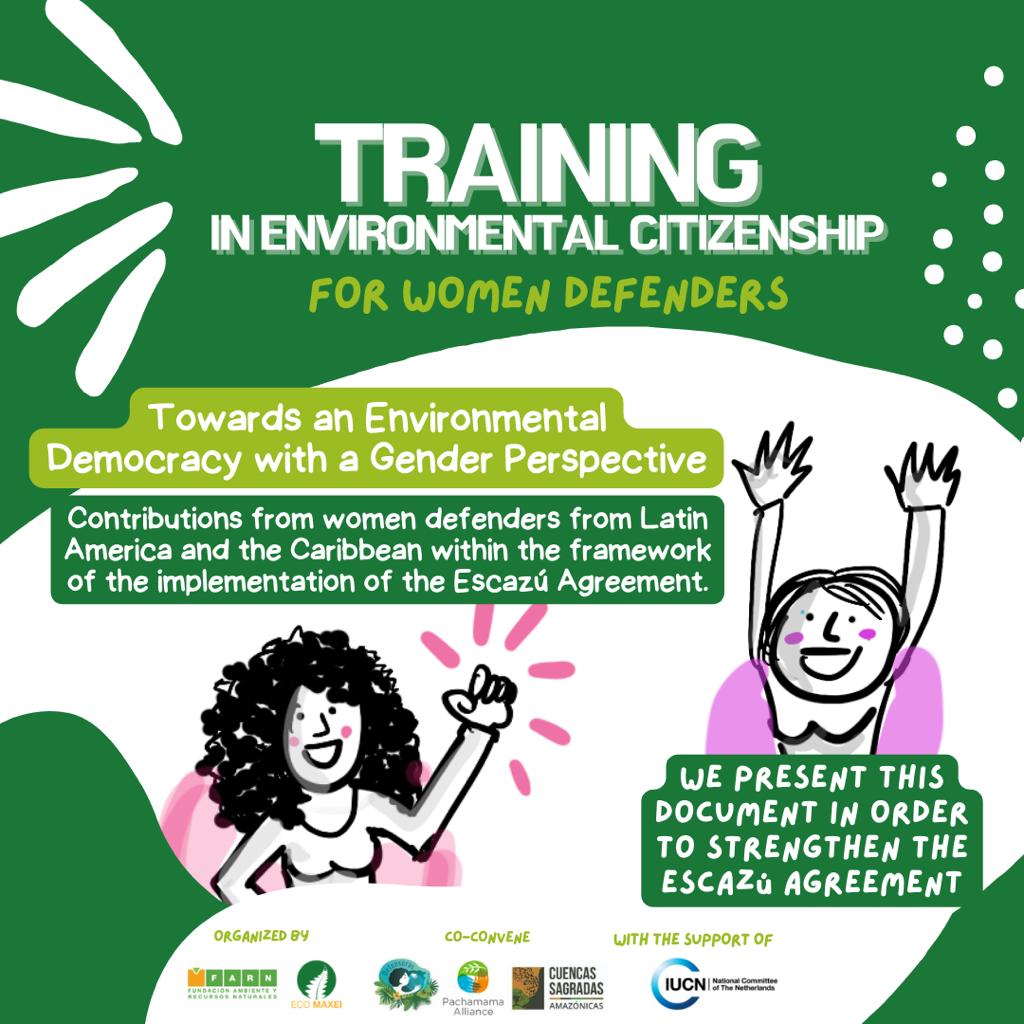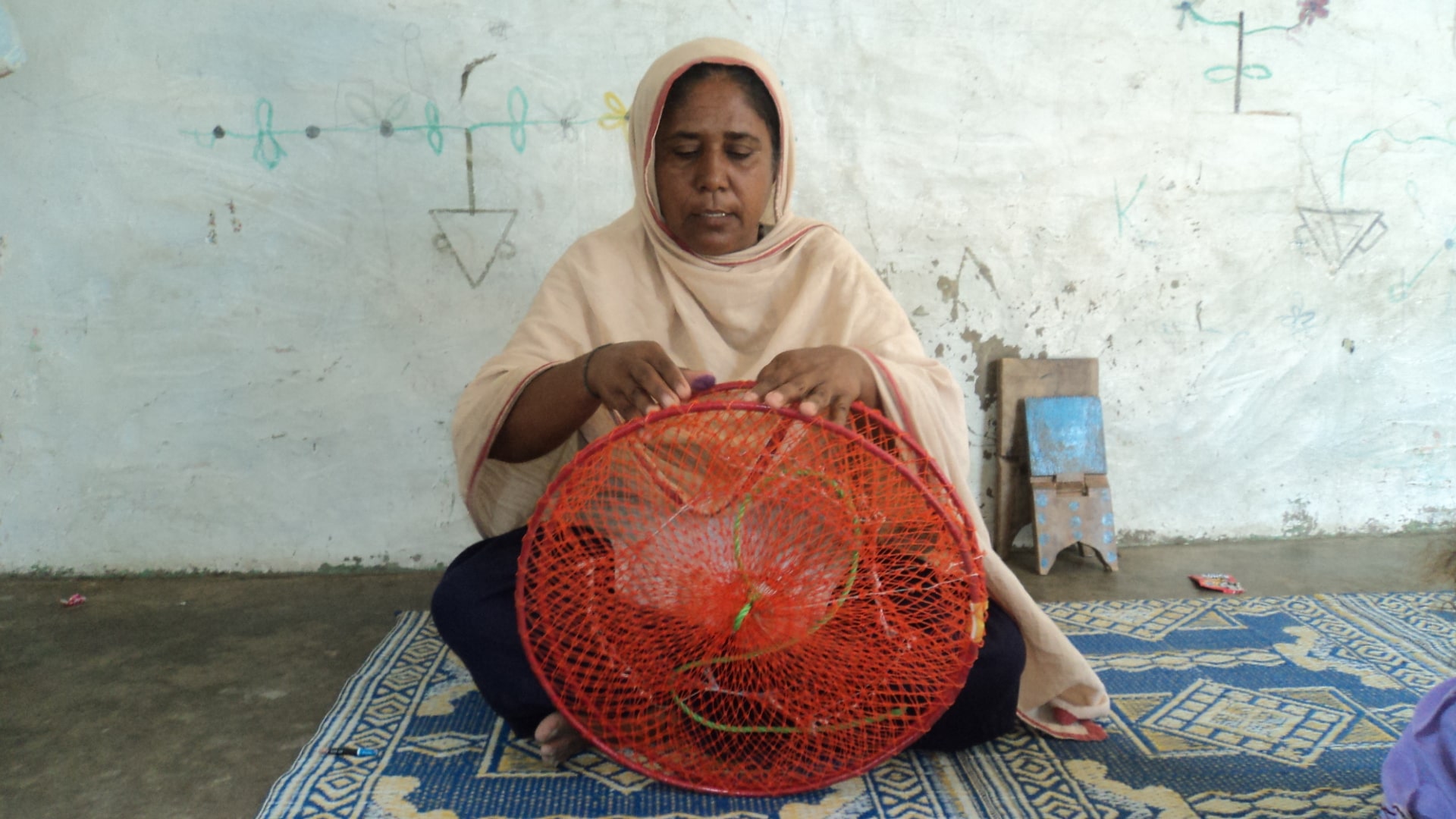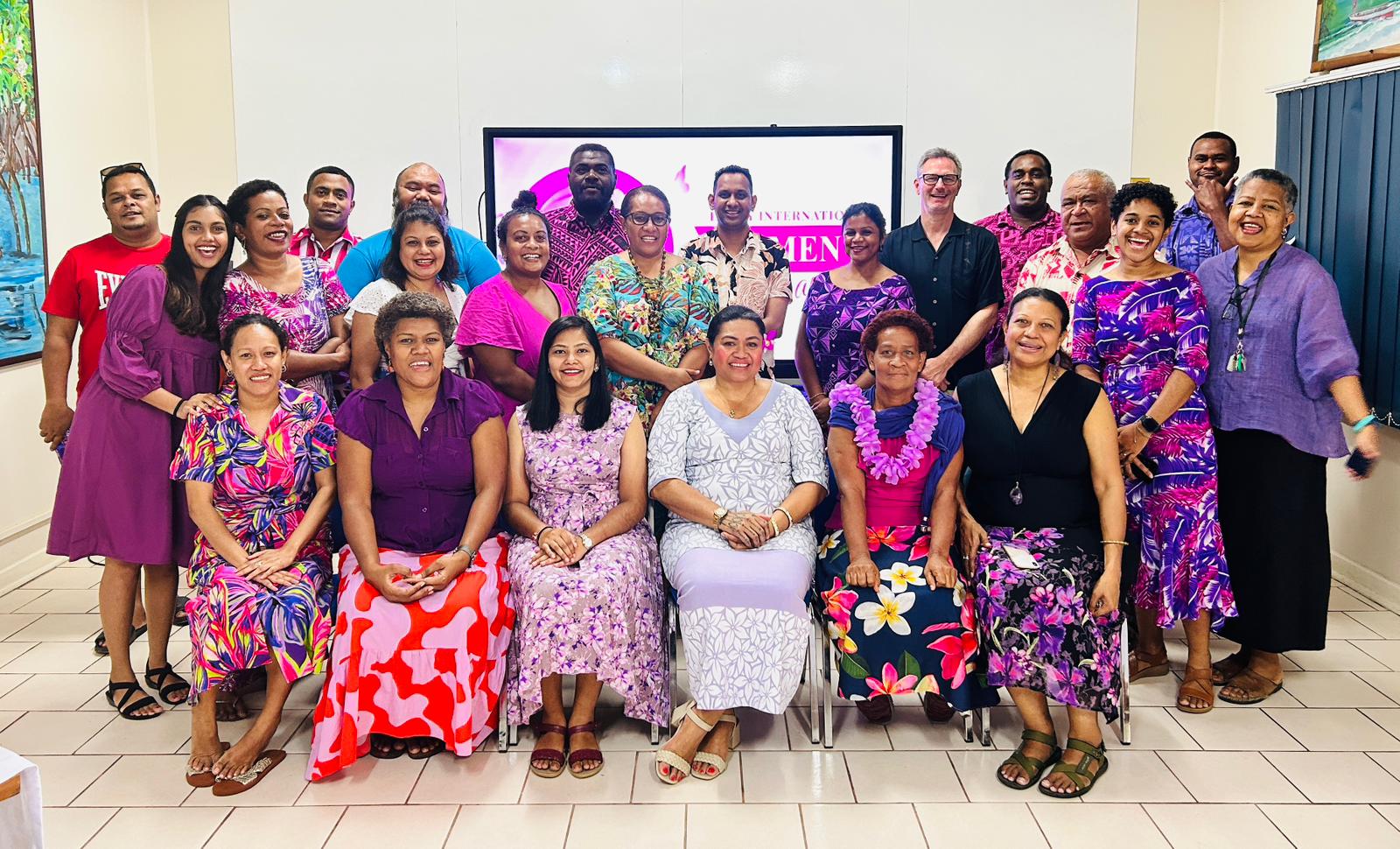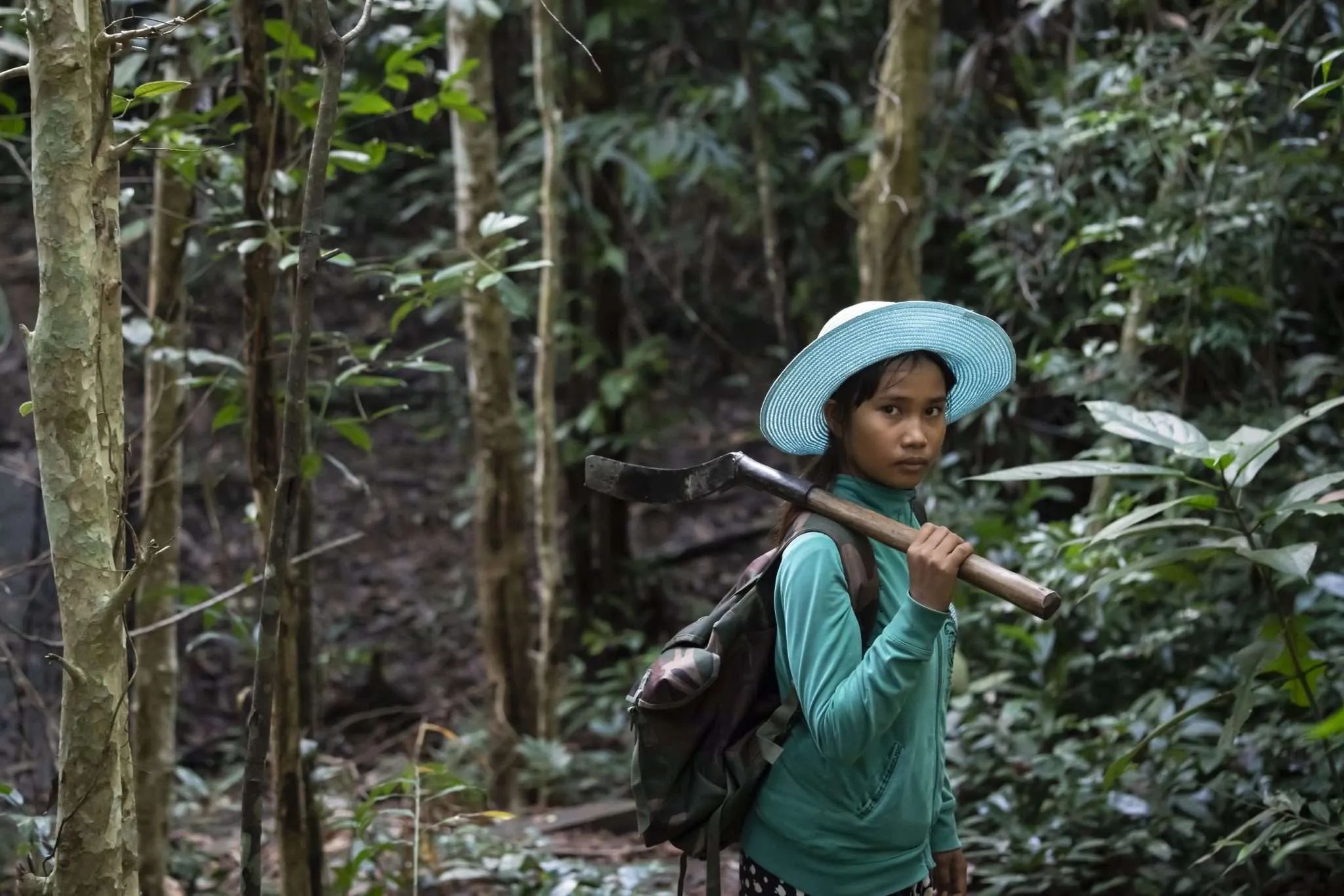Contributions from women defenders from LAC to the implementation of the Escazú Agreement
Amelia Arreguín Prado & Ana Di Pangracio, CEESP members
Latin America and the Caribbean, in their diversity, face similar extractive and environmental problems, as well as gender violence and social inequalities. These issues severely impact biodiversity, human health and the livelihoods of communities. In this context, the Environmental Citizenship Training for Women Defenders (ECA para Defensoras) is a stepping stone towards building essential networks for the defense of human rights and the rights of nature.
The Environmental Citizenship Training for Women Defenders (ECA para Defensoras) is a joint initiative of FARN and Eco Maxei from Argentina and Mexico, respectively, with the support of the IUCN National Committee of The Netherlands. During 2022, the first edition of the Training brought together 25 women environmental human rights defenders from Mexico, Costa Rica, Panama, Venezuela, Colombia, Peru, Brazil and Argentina.
In Latin America and the Caribbean (LAC), dozens of environmental defenders are killed every year, and a large percentage of the victims are indigenous or local leaders. This puts us in a position where exercising our rights is dangerous, because the safety of our families and communities is at risk. Currently, the Escazú Agreement (EA) is the only instrument to include mandatory provisions for States to protect environmental defenders.
In response to this situation, and as a result of the training, a set of entry points were identified to implement the EA effectively, urgently and in a gender-responsive manner related to environmental justice:
- Improve the social networks between defenders of the region, especially strengthening the role of women in the defense of the environment, integrating a gender-based approach into the EA and its implementation.
- Promote a better socialization and dissemination of the EA and the citizen rights that it grants to the general public, but with a special emphasis on groups in situations of vulnerability, particularly Indigenous Peoples. Establish mechanisms and gender, intercultural and age quotas in all processes, spaces, events and decisions conducted within the framework of the EA.
- Guarantee the full and effective participation of women defenders in the Compliance Committee, the Forum on Human Rights Environmental Defenders, and other spaces and negotiations within the EA.
- Establish gender equality as one of the permanent items in the agenda of EA’s COP.
- Establish the design and implementation of a Gender Plan of Action to guide and facilitate gender equality in the work of the EA.
- Establish specific protocols with a gender perspective to ensure that the human rights of environmental defenders are protected.
- Establish rapid actions, including precautionary and provisional measures, and provide adequate and effective repair mechanisms.
- Have a judiciary branch specialized in environmental matters. A specialized judicial branch is needed to be able to ensure the resolution of socio-environmental conflicts. Courts and prosecutors’ offices are required for this purpose.
- Improve the access to timely and transparent judicial procedures, considering that we are located in the world’s most dangerous region for environmental and human rights defense.
- Ensure that access to justice is free of charge, so that all the citizens can access it and effectively exercise their right.
- Keep records and monitor all judicial decisions in environmental matters, as a strengthening mechanism for access rights.
- Carry out campaigns to make sure relevant information is known by affected citizens, to ease the conditions for environmental litigation.
- Promote arbitrators that are impartial and sensitive to the exercise of the EA.
- Adjust the probationary rules to the environmental complexity, generating dynamic burden of proof or reversal of the burden of proof mechanisms.
It is imperative that we strengthen the participation and influence of women in environmental processes, by undertaking gender-responsive actions with an intercultural and intergenerational perspective. Only when women defenders become able to integrate its priorities into environmental policy at all levels, the socio-environmental crisis we live in will be solved.
Read the resulting document in English and Spanish.
For more information of ECA para Defensoras please visit these pages on the FARN website and on the Eco Maxei website.
